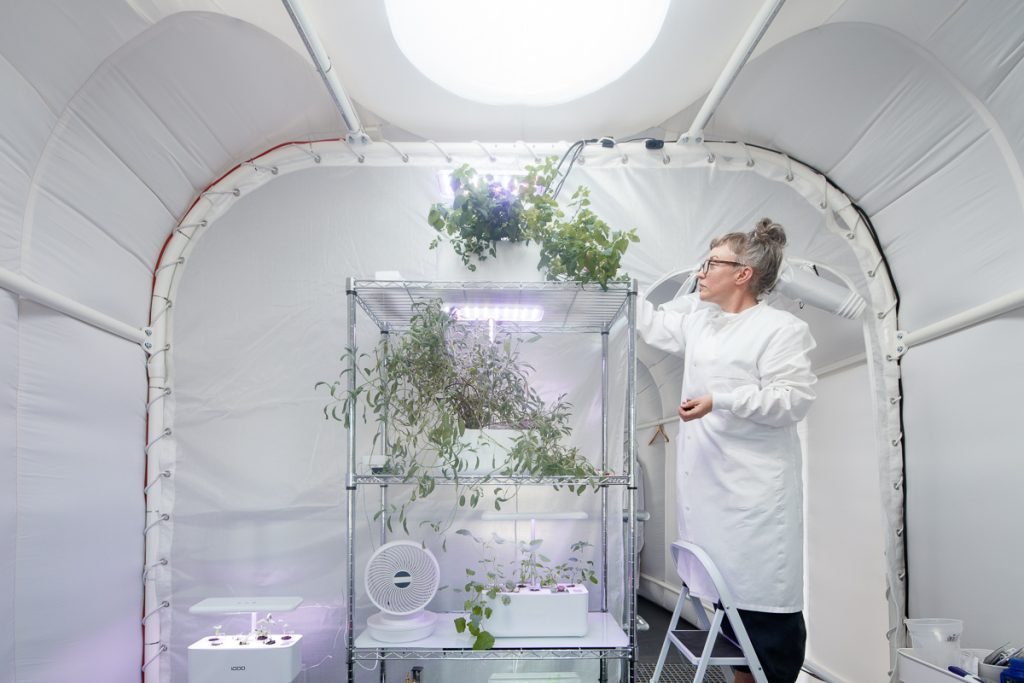
Can plants participate in Brigstow’s mission to co-produce knowledge? The Institute’s research into living well involves diverse groups from academia and beyond, each bringing their own experiences and histories to bear as values and ideas mingle. In our project, Growing Liveable Worlds, one of our goals was to experiment by inviting plants into the Brigstow family.
Our plants grew inside The Martian House, an actual house for simulating life on Mars built next to Bristol’s MShed in summer 2022. The Martian House was an experiment in Martian living – codesigned by diverse communities over several years and showcasing a participatory vision for what life might be like on the Red Planet.
Artist Katy Connor, along with doctoral students Olivia Lockyear and Jessie Sweetman, tended several hydroponic systems – a technology for growing plants in a liquid-based medium using artificial light. Basil, lemon balm and other species occupied the upper floor of the Martian House. We speculated about why people might select plants to bring to Mars. For the grounding presence of green bodies? Scents? For eating, nutrition and pleasure?

Our approach to growing plants aimed to let the poetics of vegetal growth emerge from hydroponic systems. Plants overflowed their containers, roots and leaves intermingling. Guests were invited to drink lemon balm tea, and dream of sitting under a butterscotch-hued Martian sky. We wanted the plants to grow for themselves, as much as for the humans in the Martian House: HydroPoetics, not just hydroponics. We played with the idea that on Mars we would need to have a genuine partnership with plants, not just see them as part of a machine-like system for providing food. Visitors speculated about what the plants might do differently on Mars – would they develop novel behaviours, would they even become new species?
Researching with humans implies ethical interactions: who is included, whose voice is heard, which perspectives are privileged, as well as fairness, informed consent and avoiding any harm. Research with animals entails a calculated ethics to weigh harm and benefit. But what ethics accompany research with plants?
The biological sciences obviously conduct research on plants. But the arts-based practice of Growing Liveable Worlds tried to do research with plants. Their needs were made central: helping them adapt to the conditions of The Martian House was a technical challenge. Ensuring they flourished required considerable care and attention. It was they, the plants, who helped generate a sense of the Martian unfamiliar in the middle of a busy Bristol summer. Without them the project wouldn’t have happened, they were genuine partners in creating the Martian House experience.
We hope future projects can bring plants into the Brigstow family. Plants are, after all, essential in learning what it means to live well in the 21st century – on Earth and perhaps beyond.
Find out more about Growing Liveable Worlds, or read a participants experience of the visiting the Martian House and taking part in the Hydropoetics workshop.

